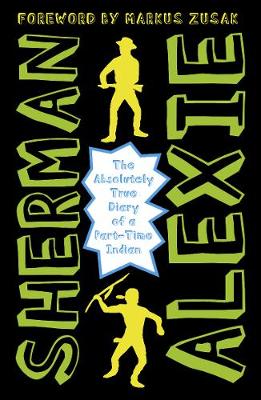Reviewed by brokentune on
I know, I keep bashing a lot of YA reads because I find them silly or overly emotive, and in a way the story of Arnold, too, suffers from both these elements, but there is also something fresh and raw in the way Arnold describes his world that is hilarious and sincere at the same time.
In short, I enjoyed all the elements that ensure this book ended up on the "banned books" list. Why ould you want to keep YA readers away from a story that focuses on the emancipation of the main character and his struggle with his sense of community?
Why ban a book on the grounds of language and perceived non-conformance to political correctness when the essence of the story really tries to deconstruct some of the myths of the cultural barriers that the book banning people seem to think are portrayed in an offensive manner?
Really makes you question whether the book banning people have read the book at all.
This reader would not be surprised if they had not.
It does remind me of one of my favourite scenes in the book (even though it is very similar to a certain scene in Dead Poets Society), at the end of which Arnold Spirit, Jr, concludes that he used to think that people were divided by their differences in tribes, or race, but that really there are only two kinds of people: those who are assholes, and those who are not.
Reading updates
- Started reading
- 26 March, 2016: Finished reading
- 26 March, 2016: Reviewed
